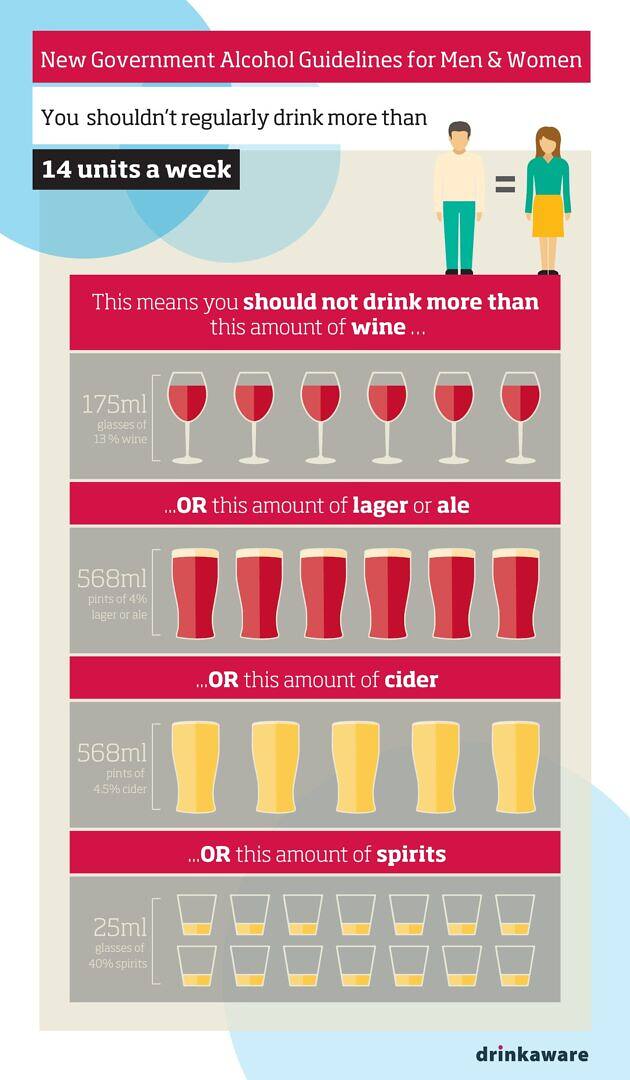
Is alcohol putting you in the mood?
For many people, alcohol is a quick and easy way to relax and unwind after a stressful day at work or after a hectic day looking after the kids. A few beers or glasses of wine can help to alleviate stress and tension literally within minutes. Many of us do this from time to time, and for most, it is not a problem.

However, if you are frequently drinking above the recommended safe alcohol guidelines, then this can have an adverse effect on your day to day mood. Heavy and/or frequent drinking can even lead to more worrying symptoms of mental health issues.
Whilst alcohols effects can initially help you to feel more relaxed; it is a very temporary solution. Alcohol, especially when abused or consumed in excess, can leave you feeling hungover, anxious, tired and depressed – once its comforting effects wear off. It can, in fact, do the opposite of what you are trying to achieve.
We at Detox Plus UK feel that it is important to help you recognise the signs of when alcohol is having a negative impact on your mental health, and if it is, what you can do about it.
How much alcohol is safe for mental health?
Every person is different, and everyone reacts to alcohol differently. If you already have existing mental health issues, we guarantee that drinking will not help and could, in fact, be making your symptoms much worse.
The guidelines for safe alcohol consumption, as recommended by the Chief Medical Officer, state that no more than 14 units of alcohol should be consumed in any one week. This is regardless of your age and whether you are male or female.
These recommendations are there to protect both your physical and mental health. The safe drinking guidelines also suggest that you spread the units out evenly throughout the week and that you have at least a couple of alcohol-free days. If you are pregnant or breastfeeding the safest amount of alcohol is zero.

Source: Drinkaware – what your weekly limit of alcohol could look like
If you already have mental health issues, especially if you are taking prescribed medication to help with it, then there is no safe amount. Alcohol is a depressant, and so will only make you feel worse the next day. Alcohol also counteracts the pharmaceutical effects of psychiatric medication. Mixing the two together can be extremely dangerous and unpredictable. If you are taking psychiatric medication, please check with your prescriber if any amount of alcohol is safe.
For those that have never suffered from a mental health illness, drinking excessively or above the recommended safe alcohol limits on a regular basis can still put you at risk. The more alcohol you drink, the bigger the risk you are taking with your mental wellbeing – both in the short term and long term.
Signs alcohol is affecting your mental health
If you are suffering from mental health issues and are concerned alcohol may be the problem, please lookout for the following signs that alcohol is negatively affecting your mental health:
- The morning after drinking you feel anxious, fearful and low in mood
- You struggle to fall asleep or stay asleep when you have been drinking alcohol
- Your anxiety increases in places or with people who you would normally feel comfortable with
- You frequently feel very tired, rundown and/or suffer mood swings after drinking
- You have noticed your mental health deteriorate as your alcohol consumption has increased
- Others have suggested alcohol may be a problem and causing you to feel anxious or depressed
- You suffer from irrational fear and negative thoughts following drinking
Experiencing any of these signs is a red flag that should not be ignored. Please see your GP for an appointment and so that the correct referrals for community treatment can be made. Alternatively, if you want private help to stop drinking and to receive treatment for your mental health, call Detox Plus UK today.
Alcohol and anxiety
How you cope with stress and anxiety is very important. Letting your hair down occasionally and having a few drinks isn’t considered harmful. The danger comes when you are frequently drinking to change your mood. This negatively impacts your mental health in a number of ways.
Anna from London shares her experience:
“I started to drink in the evenings to help me relax after suffering from increasing anxiety during and after work. I felt restless and unable to switch off.
To start with the alcohol helped. I felt much more at ease after a couple of glasses of wine in the evening. After a few months, I found I needed more than two glasses to have the same effect. My sleep became very broken, and in the mornings, I felt extremely anxious, jittery and tired.
I started to suffer panic attacks – I drank even more to cope. Every day I would open my first bottle of wine around 7 pm, sometimes earlier. I then started to drink in the night when I woke to help get back off to sleep. I knew I had a problem but didn’t see it as severe, and my drinking rarely spilled over into daylight hours.
When my drinking started to heavily impact my ability to work and socialise, I knew I had to do something. I had become a recluse in the evenings. I felt run down and tired constantly. My looks started to change, and my confidence disappeared. I suffered crippling anxiety attacks in the mornings. Sometimes they were so bad that I didn’t make it into work at all. I would spend the day in bed anxious and feeling guilty.
When I made the decision to stop drinking, I found that I had developed physical dependence. It had happened slowly over time. I hadn’t considered it a possibility as only drank at night. It was only when I tried to cut down I found that I couldn’t. Stopping abruptly wasn’t an option for me – The anxiety, fear, racing thoughts and physical jitters were too much to bear.
I received help through a private alcohol detox clinic and am now teetotal. Looking back, I can see I was suffering from anxiety-related stress and should have sought professional help rather than turn to the bottle. I made things a whole lot worse for myself.
Thankfully I’ve now learned holistic techniques and use meditation and yoga to relax in the evenings. I’ve also learned that talking about my anxieties with my therapist helps to relieve them and put them into perspective.
Sometimes I still suffer from bouts of anxiety-related insomnia, but rather than try and fix it with a drink, I accept it. I am extra kind to myself and trust it will pass, and it always does”.
Anna’s experience is not uncommon, and many individuals use alcohol to help cope with anxiety, low self-confidence, stress, and life’s problems in general.
Alcohol works on the central nervous system and is a depressant drug. Initially, after a few drinks, it is likely you will feel more at ease. You may also find that your mood improves, but these benefits are transient and fleeting.
Once alcohols effects start to wear off, negative and anxious feelings can return with a vengeance. Alcohol only suppresses feelings, and it does nothing to change or address them. If you find yourself drinking to escape unpleasant feelings on a regular basis, then this is a recipe for disaster.
How alcohol affects mental health
Repeated and prolonged periods of exposure to alcohol can gravely affect your mental health. Excessive drinking on a regular basis can cause physiological damage to brain tissue and psychological damage through developing a reliance on it to solve your problems.
Alcohol can be an influential factor in many mental health issues. Those who drink heavily and frequently rarely have good mental health – The chemicals in alcohol affect the way the brains neurotransmitters communicate, and it also activates the brain’s reward system.
Frequent exposure to alcohol can cause a person’s brain to become reliant on it in order to release mother natures feel-good chemicals serotonin and dopamine. When this happens, they are likely to feel anxious, depressed, fearful and unmotivated unless they have a drink. It is this process that leads to addiction.
Alcohol addiction is driven by the way a person feels without alcohol. It is more than just physical dependence. Mentally the choice of having a drink or not is taken away and is replaced by a compulsion for alcohol. Suffering from a mental health condition also makes an individual more predisposed towards developing it.
Excessively drinking over the long term is a major influencer in developing a number of commonly occurring mental health issues. This includes anxiety, depression, panic disorder, schizophrenia and even psychosis. It can also cause the onset of Wernicke-Korsakoff Syndrome (wet brain) and dementia. Sadly once the brain has reached this stage, there are very few interventions that will actually help.
Alcohol and dual diagnosis
Where there is alcohol abuse, misuse or drug addiction present alongside a mental health issue, this is referred to as dual diagnosis in the addiction treatment field. This term can, however, be misleading – more than one mental health illness can present in addition to suffering from addiction.
Where alcoholism and mental health coexist, treatment is never straightforward or quick.
In the community, the NHS always request that those with dual diagnosis address their substance misuse problem before commencing psychiatric treatment. This can prove extremely difficult for someone who has developed a drug or alcohol addiction or dependence. Addiction in itself is a life-threatening illness that compels the sufferer to drink or take drugs – regardless of the cost to their physical, mental, emotional, social or financial well being.
Those that suffer from dual diagnosis are often extremely vulnerable and require intensive help and support from professionals in order to recover fully and help prevent relapse.
Thankfully, the private residential treatment sector specialises in the treatment of addiction and its common co-occurring illnesses. Those presenting with dual diagnosis receive simultaneous treatment for all conditions diagnosed within the same treatment episode.
Private rehab clinics use a combination of medical and therapeutic treatments in order to achieve the best possible outcome. Each patient is also treated on an individual basis as opposed to the standard protocol applied by the NHS.
For more information on costs, treatment options and residential rehab programmes call Detox Plus UK today on 02072052734 or email us on our contact page.


